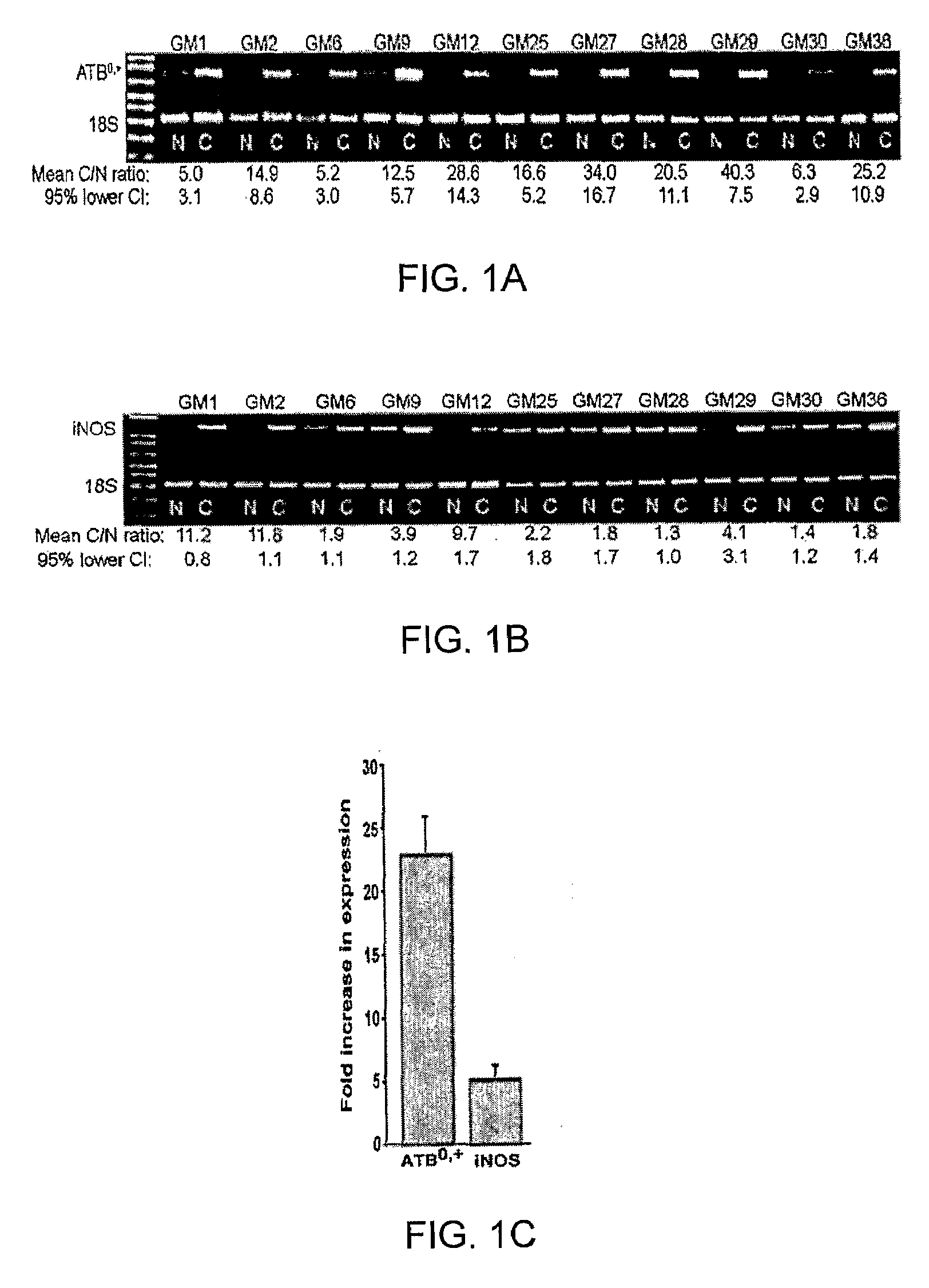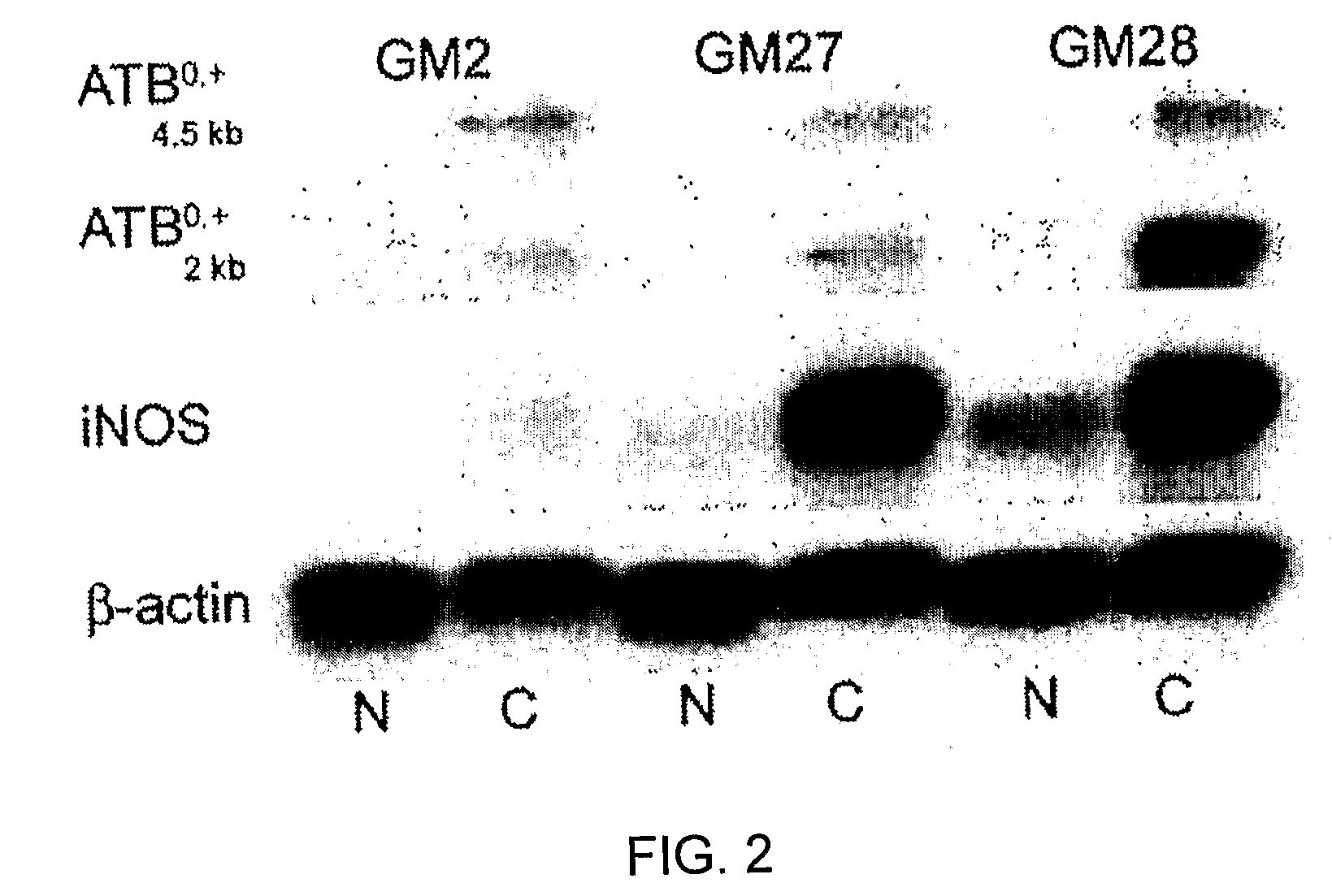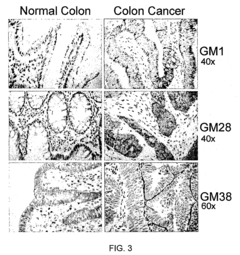Butyrate’s Role in Reducing Colon Cancer Risk
Butyrate and Colon Cancer: Background and Objectives
Butyrate, a short-chain fatty acid produced by gut bacteria during the fermentation of dietary fiber, has emerged as a key player in maintaining colon health and potentially reducing the risk of colon cancer. The exploration of butyrate's role in cancer prevention has gained significant momentum in recent years, driven by the growing understanding of the gut microbiome's impact on human health.
The historical context of butyrate research dates back to the 1970s when scientists first observed its effects on cell differentiation and proliferation. However, it wasn't until the late 1990s and early 2000s that researchers began to uncover its specific mechanisms in relation to colon cancer prevention. This shift in focus coincided with the broader recognition of the importance of the gut microbiome in human health and disease.
As research progressed, several key discoveries highlighted butyrate's potential. Studies revealed its ability to induce apoptosis in colon cancer cells while promoting the growth of healthy colonocytes. Additionally, butyrate was found to have anti-inflammatory properties and the capacity to enhance the gut barrier function, both of which are crucial in preventing the development of colon cancer.
The technological advancements in genomics, metabolomics, and bioinformatics have significantly accelerated our understanding of butyrate's role. These tools have enabled researchers to identify specific bacterial species responsible for butyrate production, map the metabolic pathways involved, and elucidate the complex interactions between butyrate, the gut microbiome, and host cells.
The primary objectives of current research in this field are multifaceted. Firstly, there is a focus on fully elucidating the molecular mechanisms by which butyrate exerts its anti-cancer effects. This includes understanding its impact on gene expression, epigenetic modifications, and cellular signaling pathways. Secondly, researchers aim to develop strategies to enhance butyrate production in the colon, either through dietary interventions or targeted probiotic supplementation.
Another critical objective is to investigate the potential synergistic effects of butyrate with other dietary components or therapeutic agents in cancer prevention. This includes exploring its role in combination with other short-chain fatty acids, polyphenols, and even conventional cancer treatments.
Furthermore, there is a growing interest in translating these findings into clinical applications. This involves designing and conducting human trials to validate the efficacy of butyrate-based interventions in reducing colon cancer risk. Additionally, researchers are exploring the development of novel drug delivery systems to effectively target butyrate to the colon.
As the field progresses, the ultimate goal is to harness the power of butyrate in developing comprehensive strategies for colon cancer prevention. This encompasses not only individual-level interventions but also population-wide approaches to promote gut health and reduce cancer risk through dietary and lifestyle modifications.
Market Analysis: Butyrate-Based Therapies
The market for butyrate-based therapies in colon cancer prevention and treatment is experiencing significant growth, driven by increasing awareness of the compound's potential health benefits. Butyrate, a short-chain fatty acid produced by gut bacteria during the fermentation of dietary fiber, has shown promising results in reducing colon cancer risk through various mechanisms, including the regulation of gene expression and the promotion of apoptosis in cancer cells.
The global market for butyrate-based therapies is expected to expand rapidly in the coming years, with a particular focus on dietary supplements, functional foods, and pharmaceutical formulations. This growth is fueled by a rising incidence of colorectal cancer worldwide, coupled with a growing consumer preference for natural and preventive healthcare solutions.
In the dietary supplement sector, butyrate products are gaining traction as consumers seek ways to improve gut health and reduce cancer risk. These supplements often come in the form of capsules or powders containing butyrate salts or precursors. The functional food market is also seeing increased interest in butyrate-enriched products, with manufacturers developing novel food items fortified with butyrate or its precursors.
The pharmaceutical industry is investing heavily in research and development of butyrate-based drugs for colon cancer prevention and treatment. Several clinical trials are underway to evaluate the efficacy of butyrate compounds in various formulations, including targeted delivery systems designed to release butyrate directly in the colon.
Market segmentation for butyrate-based therapies includes preventive solutions for high-risk individuals, adjunct treatments for patients undergoing conventional cancer therapies, and post-treatment care products for cancer survivors. Each segment presents unique opportunities and challenges for market players.
Geographically, North America and Europe currently lead the market due to advanced healthcare infrastructure and higher consumer awareness. However, Asia-Pacific is expected to witness the fastest growth, driven by increasing healthcare expenditure and a rising prevalence of colorectal cancer in countries like China and India.
Key market players include both established pharmaceutical companies and innovative biotech startups. These firms are focusing on developing proprietary formulations and delivery technologies to enhance the bioavailability and efficacy of butyrate in the colon. Strategic partnerships between research institutions and industry players are becoming increasingly common, accelerating the pace of innovation in this field.
Despite the promising outlook, the market faces challenges such as the need for more extensive clinical validation, regulatory hurdles, and competition from alternative cancer prevention strategies. However, the growing body of scientific evidence supporting butyrate's role in colon health continues to drive market expansion and attract investment in this promising therapeutic approach.
Current Understanding and Challenges in Butyrate Research
The current understanding of butyrate's role in reducing colon cancer risk has advanced significantly in recent years, yet several challenges remain in this field of research. Butyrate, a short-chain fatty acid produced by bacterial fermentation of dietary fiber in the colon, has been shown to possess anti-inflammatory and anti-carcinogenic properties. Studies have demonstrated that butyrate can inhibit histone deacetylases (HDACs), leading to epigenetic modifications that regulate gene expression and cellular processes associated with cancer prevention.
One of the key mechanisms by which butyrate is thought to reduce colon cancer risk is through its ability to promote apoptosis in colorectal cancer cells while simultaneously stimulating the growth of healthy colonocytes. This selective effect on cancerous versus normal cells, known as the "butyrate paradox," has been a subject of intense investigation. Research has also revealed that butyrate can enhance the intestinal barrier function, reducing the permeability of the gut lining and potentially limiting the exposure of colonic tissue to carcinogenic substances.
Despite these promising findings, several challenges persist in butyrate research. One significant obstacle is the difficulty in maintaining consistent butyrate levels in the colon due to its rapid absorption and metabolism. This has led to challenges in designing effective clinical studies and developing targeted delivery systems for butyrate or its precursors. Additionally, the complex interplay between butyrate, the gut microbiome, and host genetics presents a multifaceted research landscape that requires sophisticated analytical approaches.
Another challenge lies in translating in vitro and animal model findings to human populations. While laboratory studies have shown promising results, human clinical trials have sometimes yielded inconsistent outcomes, highlighting the need for more robust and well-designed human studies. The variability in individual responses to butyrate supplementation or dietary interventions aimed at increasing butyrate production also poses a challenge in developing standardized recommendations for cancer prevention.
Furthermore, the optimal dose and duration of butyrate exposure for cancer prevention remain unclear. Research is ongoing to determine whether sustained low-level exposure or intermittent high-level exposure is more effective in reducing cancer risk. The potential for butyrate to interact with other dietary components and medications also requires further investigation to ensure its safe and effective use in cancer prevention strategies.
As research progresses, emerging technologies such as metabolomics and advanced microbiome sequencing are providing new insights into butyrate metabolism and its effects on the colonic environment. These tools may help address some of the current challenges by offering more precise measurements and a deeper understanding of the mechanisms involved in butyrate's anti-cancer effects.
Existing Approaches to Butyrate Supplementation
01 Butyrate as a protective agent against colon cancer
Butyrate, a short-chain fatty acid produced by gut bacteria, has been shown to have protective effects against colon cancer. It acts as a histone deacetylase inhibitor, regulating gene expression and promoting apoptosis in cancer cells. Studies have demonstrated that increased butyrate production in the colon may reduce the risk of colorectal cancer development.- Butyrate as a protective agent against colon cancer: Butyrate, a short-chain fatty acid produced by gut bacteria, has been shown to have protective effects against colon cancer. It acts as a histone deacetylase inhibitor, regulating gene expression and promoting apoptosis in cancer cells. Studies have demonstrated that increased butyrate levels in the colon may reduce the risk of colorectal cancer development.
- Genetic markers for butyrate metabolism and colon cancer risk: Researchers have identified genetic markers associated with butyrate metabolism that may influence an individual's risk of developing colon cancer. These markers can be used to assess a person's susceptibility to colorectal cancer and potentially guide preventive measures or early detection strategies.
- Butyrate-producing bacteria and colon cancer prevention: The presence and abundance of butyrate-producing bacteria in the gut microbiome have been linked to a reduced risk of colon cancer. Strategies to enhance the growth of these beneficial bacteria, such as dietary interventions or probiotic supplementation, may offer potential approaches for colon cancer prevention.
- Butyrate as a biomarker for colon cancer risk assessment: Butyrate levels in fecal samples or colonic tissue have been proposed as potential biomarkers for assessing colon cancer risk. Measuring butyrate concentrations or related metabolites may provide valuable information for early detection and risk stratification of colorectal cancer.
- Butyrate-based therapeutic approaches for colon cancer: Researchers are exploring butyrate-based therapeutic approaches for the prevention and treatment of colon cancer. These include developing butyrate prodrugs, targeted delivery systems, and combination therapies that leverage the anti-cancer properties of butyrate to enhance treatment efficacy and reduce side effects.
02 Genetic markers for butyrate metabolism and colon cancer risk
Research has identified genetic markers associated with butyrate metabolism that may influence colon cancer risk. These markers include genes involved in butyrate production, transport, and utilization. Genetic variations in these pathways may affect an individual's susceptibility to colon cancer and could be used as potential biomarkers for risk assessment and personalized prevention strategies.Expand Specific Solutions03 Butyrate-producing bacteria and colon cancer prevention
The presence and abundance of butyrate-producing bacteria in the gut microbiome have been linked to a reduced risk of colon cancer. These bacteria play a crucial role in maintaining gut health and producing beneficial metabolites. Strategies to enhance the growth of butyrate-producing bacteria through dietary interventions or probiotics may offer potential approaches for colon cancer prevention.Expand Specific Solutions04 Butyrate's role in modulating inflammation and immune responses
Butyrate has been found to modulate inflammation and immune responses in the colon, which may contribute to its protective effects against cancer. It can suppress pro-inflammatory pathways, enhance the integrity of the intestinal barrier, and regulate immune cell function. These immunomodulatory properties of butyrate may play a significant role in reducing colon cancer risk.Expand Specific Solutions05 Butyrate-based therapeutic approaches for colon cancer
Research has explored the potential of butyrate-based therapeutic approaches for colon cancer prevention and treatment. These include the development of butyrate prodrugs, targeted delivery systems, and combination therapies with other anti-cancer agents. Such approaches aim to leverage the anti-cancer properties of butyrate while overcoming its limitations in bioavailability and stability.Expand Specific Solutions
Key Players in Butyrate and Colon Cancer Research
The research on butyrate's role in reducing colon cancer risk is in a developing stage, with growing market potential as awareness of gut health increases. The global market for butyrate-related products is expanding, driven by rising interest in preventive healthcare. Technologically, the field is advancing rapidly, with companies like Société des Produits Nestlé SA, Cargill, Inc., and DSM IP Assets BV leading in product development. Academic institutions such as Jiangnan University and The University of Chicago are contributing significant research. The collaboration between industry and academia is accelerating the development of butyrate-based interventions, indicating a maturing but still evolving technological landscape.
Société des Produits Nestlé SA
Jiangnan University
Critical Patents and Literature on Butyrate Mechanisms
- The use of the ATB0,+ transporter to deliver modified amino acids conjugated with short-chain fatty acids, such as butyrate or pyruvate, into cancer cells, bypassing the impaired normal transport mechanisms and enhancing the targeting of biologically active molecules to affected cells.
- Utilization of butyrate-producing bacteria to increase butyrate levels in the colon for cancer prevention.
- Development of targeted delivery systems to ensure butyrate reaches the colon intact.
- Identification of specific butyrate-responsive genes involved in colon cancer suppression.
Regulatory Landscape for Butyrate-Based Interventions
The regulatory landscape for butyrate-based interventions in reducing colon cancer risk is complex and evolving. In the United States, the Food and Drug Administration (FDA) plays a crucial role in overseeing the development and approval of such interventions. The FDA categorizes butyrate-based products differently based on their intended use and formulation, which significantly impacts the regulatory pathway.
For dietary supplements containing butyrate, the regulatory framework is governed by the Dietary Supplement Health and Education Act (DSHEA) of 1994. Under this act, manufacturers are responsible for ensuring the safety of their products before marketing. However, they are not required to obtain FDA approval before selling dietary supplements. This relatively lenient approach allows for easier market entry but places a greater burden on manufacturers to maintain product safety and quality.
In contrast, if butyrate is developed as a drug for colon cancer prevention, it would fall under the more stringent regulatory pathway for pharmaceuticals. This process involves extensive clinical trials to demonstrate safety and efficacy, followed by a rigorous FDA review before approval. The drug development pathway is considerably longer and more costly but provides a higher level of scientific validation for the product's claims.
The European Medicines Agency (EMA) in the European Union follows similar principles, distinguishing between food supplements and medicinal products. The regulatory approach in the EU tends to be more cautious, with stricter controls on health claims for food supplements.
Globally, there is increasing attention to the regulation of microbiome-based therapies, which may include butyrate-producing interventions. Regulatory bodies are working to develop frameworks that address the unique challenges posed by these novel therapeutic approaches. This includes considerations for the complex interactions between butyrate, the gut microbiome, and host health.
As research continues to elucidate the mechanisms by which butyrate may reduce colon cancer risk, regulatory agencies are likely to refine their approaches. This may include the development of specific guidelines for butyrate-based interventions, considering factors such as dosage, delivery methods, and potential interactions with other treatments or dietary components.
Dietary Strategies to Enhance Butyrate Production
Enhancing butyrate production through dietary strategies is a key approach to leveraging the potential of butyrate in reducing colon cancer risk. The primary focus is on increasing the intake of dietary fiber, particularly resistant starch and non-digestible carbohydrates, which serve as substrates for butyrate-producing bacteria in the colon.
One effective strategy is to incorporate more whole grains into the diet. Whole grains such as oats, barley, and brown rice are rich in resistant starch and dietary fiber. These components resist digestion in the small intestine and reach the colon, where they are fermented by gut bacteria to produce butyrate. Consuming a variety of whole grains ensures a diverse range of fiber types, promoting a healthy gut microbiome and optimal butyrate production.
Legumes, including beans, lentils, and chickpeas, are another excellent source of resistant starch and fiber. These foods not only provide the necessary substrates for butyrate production but also offer additional health benefits such as high protein content and various micronutrients. Incorporating legumes into meals regularly can significantly contribute to increased butyrate levels in the colon.
Fruits and vegetables, particularly those high in pectin and inulin, play a crucial role in enhancing butyrate production. Apples, bananas, and berries are rich in pectin, while vegetables like onions, garlic, and Jerusalem artichokes contain high levels of inulin. These prebiotic fibers selectively promote the growth of beneficial bacteria that produce butyrate.
Fermented foods, such as sauerkraut, kimchi, and kefir, can indirectly support butyrate production by promoting overall gut health and microbial diversity. While these foods may not directly increase butyrate levels, they contribute to a balanced gut ecosystem that favors butyrate-producing bacteria.
Timing of meals and overall dietary patterns also influence butyrate production. Intermittent fasting or time-restricted feeding may enhance butyrate synthesis by altering gut microbial composition and metabolism. Additionally, maintaining a balanced diet with adequate protein and limiting excessive fat intake can create an optimal environment for butyrate-producing bacteria to thrive.
Supplementation with specific prebiotics, such as fructooligosaccharides (FOS) or galactooligosaccharides (GOS), can be considered as part of a comprehensive dietary strategy. These supplements have been shown to selectively promote the growth of butyrate-producing bacteria and increase butyrate levels in the colon.



